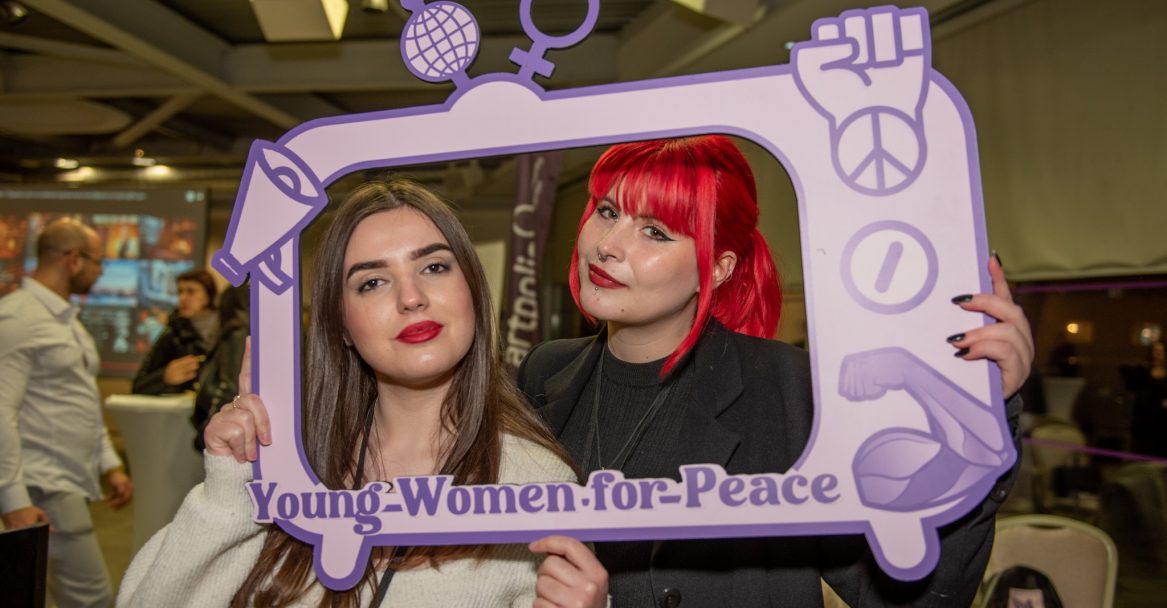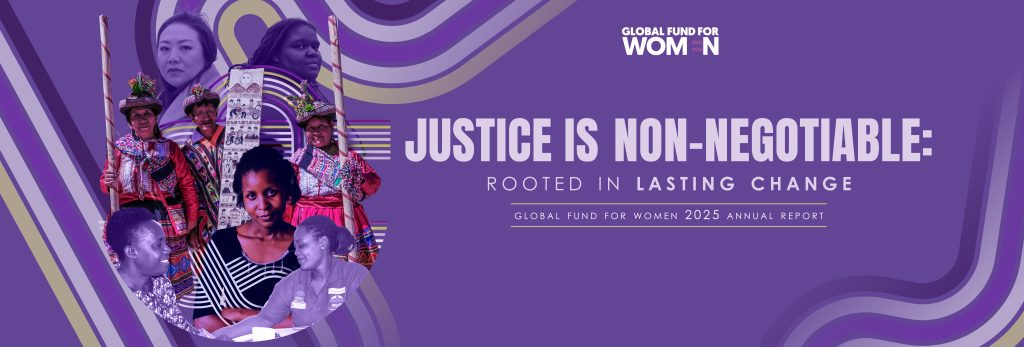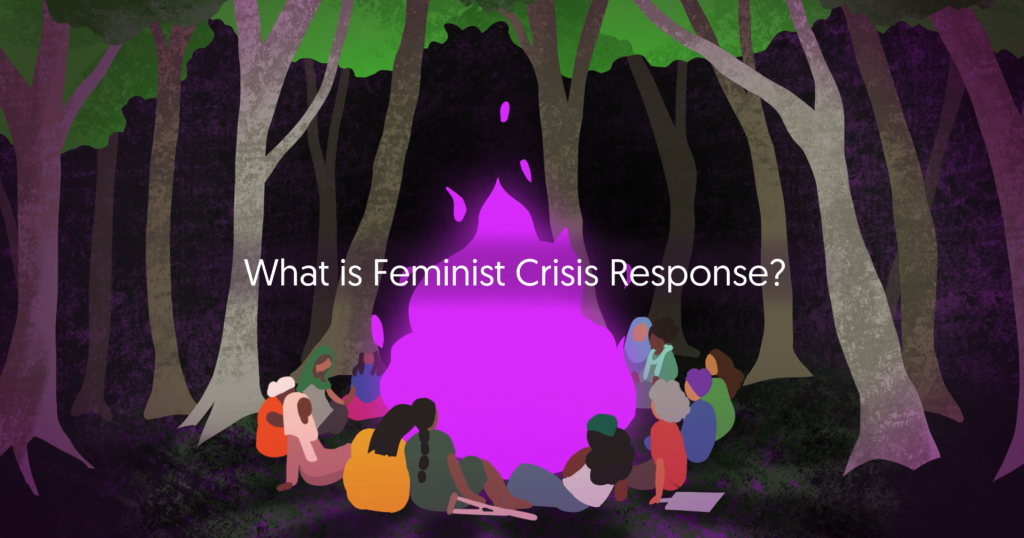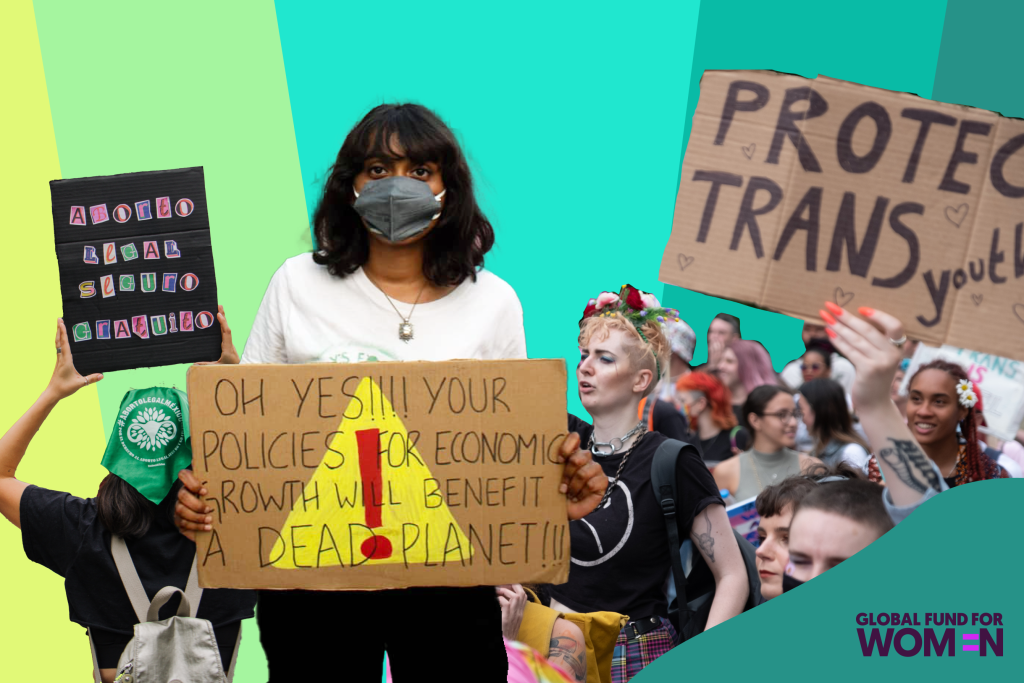Lessons Learned in Shifting Power to Support Movements
Funding Feminist Movements in the Western Balkans
“This is the first time where I'm just feeling constantly supported about every issue that I bring up, and I don't feel like I have to fight about things that, you know, relate to the F-word,’” said Andrea Ugrinoska, Executive Director of Tiiiit! Inc. in North Macedonia.
That “F-word” is feminism, and it’s at the heart of a growing movement across the Western Balkans. Together, local leaders are confronting rising sexual and gender-based violence, anti-LGBTQI+ sentiment, and attacks on fundamental rights, especially as conservative and authoritarian ideologies gain ground. Tackling such challenges requires a different funding approach: one that is led by movements and local leaders, not donors.
Global Fund for Women supports a collective model of funding in the region called participatory grantmaking. It is a unique collaborative model where local activists and movement leaders help decide who gets funded and where, so the people closest to the issues lead the way. This approach part of Global Fund for Women’s mission to shift power to gender justice movements and ensure that funding reaches those doing the work on the ground, filling critical gaps that larger donors and traditional philanthropy may overlook.
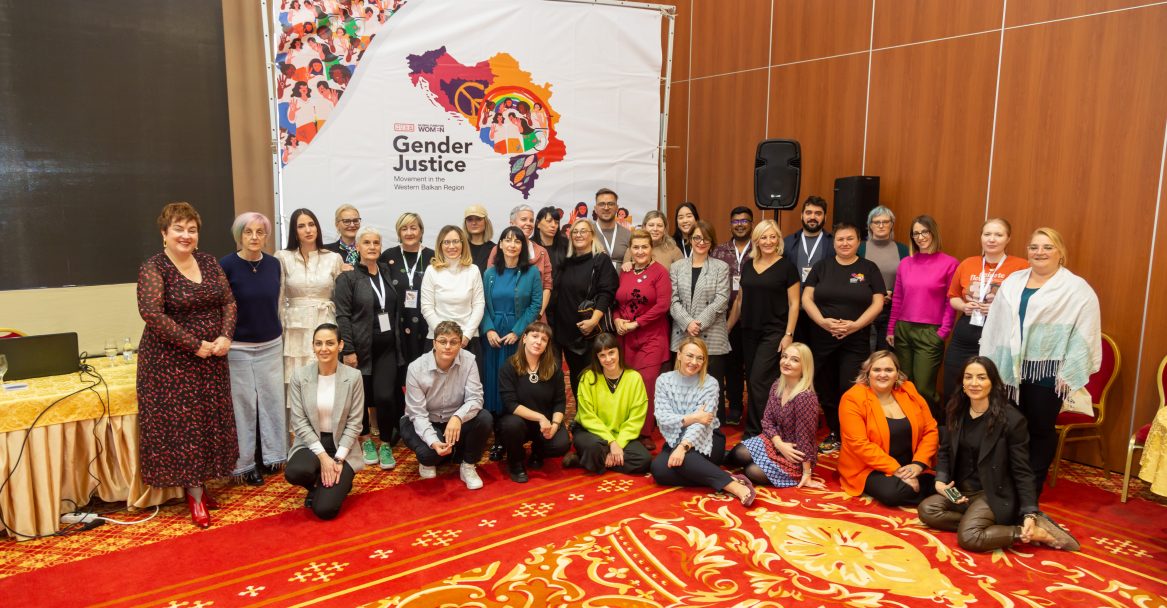
Facilitated by Fondacija CURE and a cross-disciplinary team at Global Fund for Women, the regional Grants Committee selected 73 grassroots groups to receive nearly $2 million in funding from Global Fund for Women since 2023 to advance feminist priorities across the region. The result? A powerful web of feminist organizing: schools of feminist activism for Roma girls, supporting refugees and migrants in Montenegro, preventing and responding to gender-based violence and supporting survivors in Croatia, regional coalition building and digital security in Bosnia and Herzegovina, queer-friendly and trauma-informed services, shelter, and cultural programming in Albania, and much more. These efforts are deeply local, yet collectively part of a much bigger organizing for gender justice.
“Flexible funding allows us to make critical pivots. In response to the intensified anti-gender opposition and backlash in our community, we’ve had to invest more in our own safety and security and rethink how we engage locally. Despite the challenges, our organization continues to be recognized as an expert organization by the government. Our grassroots work to influence laws and policies around gender-based violence, and our efforts to expand economic empowerment for women in rural communities, are helping to disrupt the cycles that sustain violence.” –Slagjana Nachevski, Program Coordinator at AUSZM "Women’s Action – Radovish" in North Macedonia
“This approach allows local partners to set their own priorities and strategies in order to respond to a rise of anti-gender movements in the region. This means resources go where they are most needed, and movements grow stronger."Selma Hadžihalilović, Fondacija CURE
Reflection 1 in Shifting Power and Resources to Movements
Think Global, Act Local
In a region where unrestricted, trust-based funding is becoming increasingly limited, participatory grantmaking and collective decision-making have proven essential, helping to address the local challenges and harms caused by restrictive, project-based, donor-led funding.
“Instead of top-down decisions, the goal is to build sustainable movements. By supporting movements based on their needs, Global Fund for Women enables us to mobilize resources, strengthen social capital, and enhance collective action.” – Selma Hadžihalilović at Fondacija CURE.
"The more active we are, the more consequences we face. We have been labelled as ‘bad women,’ we are facing physical danger to ourselves and our families, and we have lost a lot of funding, especially with smaller donors. That’s why it’s critical that funds reach areas outside capital cities and rural areas—places that are often less visible to donors but where feminist groups are doing vital work and are frequently excluded by traditional philanthropy.” – Slagjana Nachevski, Program Coordinator at AUSZM Woman`s Action-Radovish in North Macedonia.
“With real feminist funds, there is less bureaucracy and with no demands on imposing your politics, like other donors who tend to impose their politics and their activities on organizations, which you are not doing, which is very important.”Jelena Memet, Director of Alternative Girls Center in Serbia
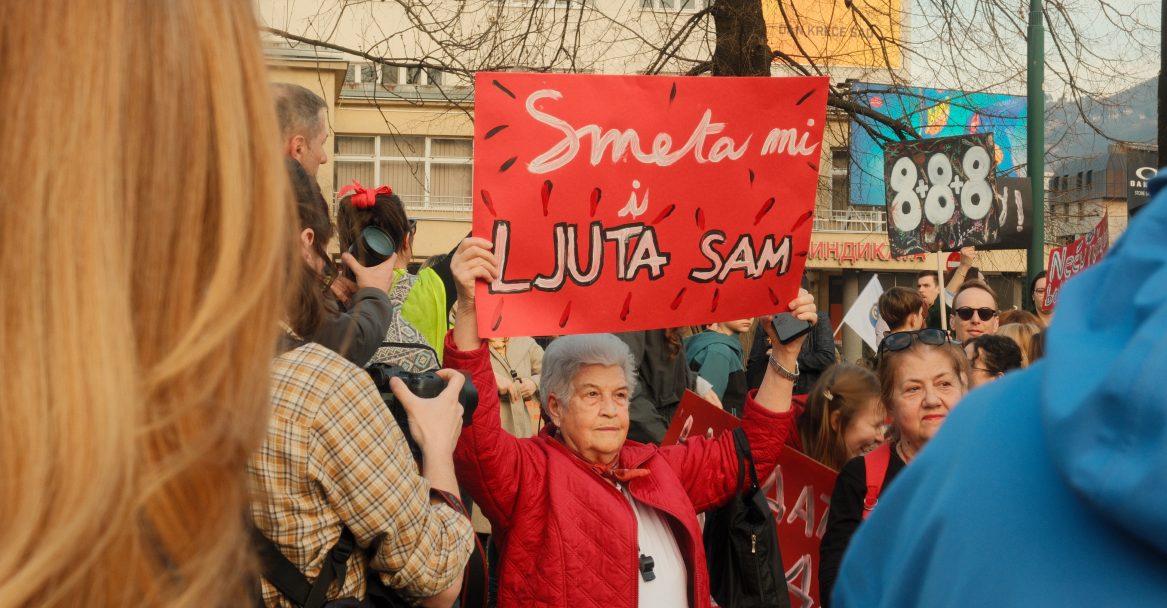
Reflection 2
Learning and Collaboration are a living practice
Trying new approaches and processes, such as participatory grantmaking, takes time, patience, and trust. Learning isn’t an activity we do at the end, but it is a continuous, active practice throughout collaboration, allowing many hands to draw the picture of “success.” In the same way, ongoing assessment and evaluating continuously isn’t about checking boxes – it is about being responsive to contextual changes and offering support. It also provides opportunities to collaborate and gain knowledge and skills from each other during the process, leading to movement strengthening.
“Transferring experiences and lessons learned from the past between older organizations and groups and younger organizations and groups is needed to build synergy and solidarity between LGBTQI+ and women’s groups to confront shared obstacles. That exchange helps us sustain momentum and build upon wins—like when we developed a medical protocol with the Ministry of Health to establish standards for transgender people to access hormone therapy. We couldn’t have achieved that alone.”Xheni Karaj, Executive Director of the Alliance Against LGBT Discrimination in Tirana, Albania
Defining “success” itself is an important part of the learning – and unlearning process – because those most impacted by injustices are better suited to identify solutions. Encouraging society to think more expansively about how success is defined, and to imagine better possibilities is one of the essential roles of artists in social movements.
“Success is spaciousness, room to breathe, freedom. [...] Making art is something that artists do in order to speak and they can't not make art. A lot of times making art and surviving are two constantly contradictory things. When you don't have to constantly be super over-productive, that's the space where art happens and that’s the space where movements and change happens.” – Eva Jus, Grants Committee member, and member of the Red Dawns Collective in Slovenia, a feminist queer arts festival.
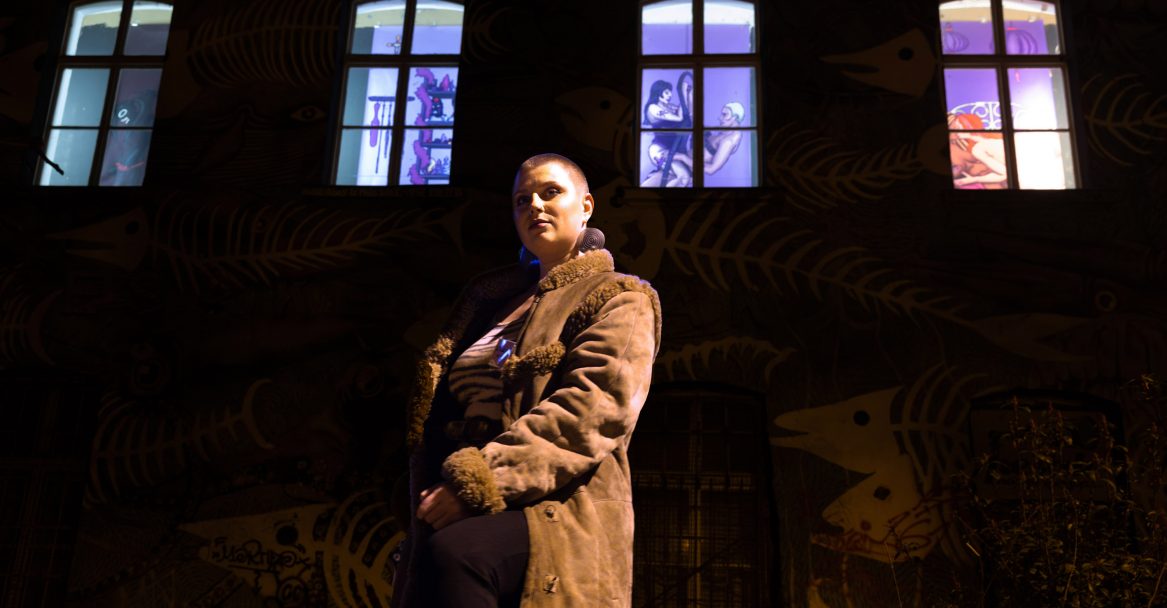
Reflection 3
Building Trust Takes Time
Building solidarity in movement work takes time, clear communication, and coming together to strengthen relationships and trust. This trust is essential for the long, challenging process of standing up to opposition and creating real social change—which doesn’t happen overnight. Trust grows when people consistently show up and live out their commitments to feminist values.
Trust happens at many levels: between Global Fund for Women and the Grants Committee, between the Committee and grantee partners, among movement members, and with the communities they serve. These connections create opportunities to work together with mutual accountability—helping to build trust and shift power toward those leading the change.
“It’s really important to have examples from our communities, because it is someone like you, and shows that success is not at a distance. Some might think, ‘okay, she’s not from the Roma population, her life was easier,’ but when you know someone like you, from the same community with the same background, who succeeds, you feel like I can do it, it’s possible for me.” – Jovana Saric of the Center for Roma Initiatives in Montenegro
Jovana described how the work to increase awareness of gender justice and women and girls’ rights has transformed behavior in her community. They’ve managed to stop cases of child marriage, keep girls in school, and shine a light on violence. Her organization now receives calls about domestic violence, but at first, she said, physical violence in relationships was seen as normal, and there is growing awareness about psychological violence.
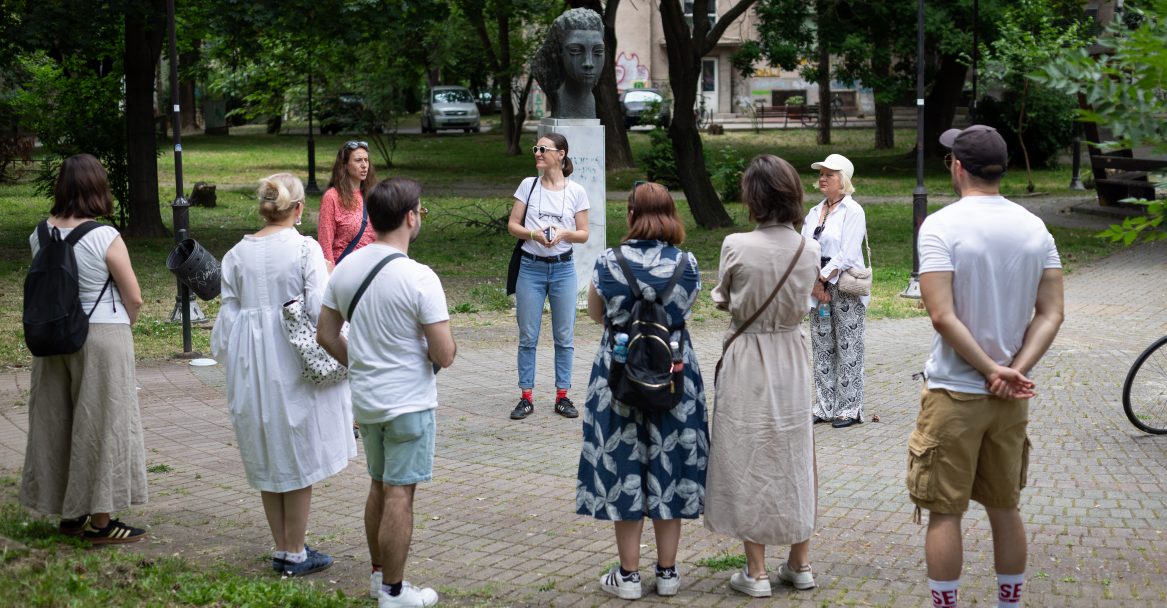
“When there is little to no trust, or when trust is broken, it can have dire consequences. Feminist Spring School is one of the programs led by Alternative Girls Center in Serbia and engages young women from Kosovo and Serbia in peacebuilding, reconciliation, transnational justice, and feminist consciousness raising. It's very emotional every time we talk about reconciliation. It's not transactional. It's relationship building, which is more important than just producing some policy papers that no one will read or listen to,” said Jelena Memet, Director of Alternative Girls Center.
The program has a 10-year proven track record but is currently struggling to sustain funding because donors’ politics are changing toward peacebuilding programs. “Government would never listen to us, especially with nowadays global politics, and for us, risks are too big and in this political context could jeopardize our lives.” – Jelena said.
For groups like Alternative Girls Center, trust-based, flexible funds are lifesaving. She explained that the flexible funding provided by Global Fund for Women enabled her organization to freely adapt their programs in response to community needs, particularly to reconnect with girls after having lost touch with them for several years during the height of the COVID-19 pandemic.
“It is important that we have this kind of flexible funds that can help us survive. Movement building is hard,” she said. “For our role, I see like it is rejuvenating the movement, because we are working from the smallest and the youngest to the oldest ones as well. It is important to build this community because we cannot expect that people come just on their own.”Jelena Memet, Director of Alternative Girls Center
Reimagine what’s possible
Around the world, in a time of intensified violence, rising authoritarianism, and the rollback of human rights, it can be hard to stay hopeful. But in the Western Balkans, feminist leaders are showing us what it looks like to fight for gender justice —by resisting, rebuilding, and reimagining what’s possible.
Thirty years after war devastated their region, grassroots feminist activists are leading efforts to create a more just and equal future. They’re proving that lasting change takes time, care, and long-term funding. Their work reminds us that hope isn’t just a feeling—it’s a practice.
“In this globally difficult time, we want to look at the situation in the countries we come from and try to make our contribution to a life without suffering and in peace.” – Jadranka Milicevic, founder of Fondacija CURE and a feminist activist and peacemaker for the past 31 years.
Inspiration for other funders to take forward
Think Global, Act Local
- Widen the scope of data points, inputs, and perspectives that inform funding decisions. Who is making the decisions, and who is not?
- Consider using—and adequately resourcing—collaborative approaches and tools that invite more perspectives into decision-making, such as nomination and voting of representatives, co-design and implementation of data collection instruments, and holding space and time for collective sensemaking and validation workshops.
Making the Path as We Walk Together
- Fellow funders should embrace a learning mindset and be open to test approaches that challenge the status quo of top-down philanthropy.
- Be willing to respond to lessons learned and incorporate insights into action. Invest in organizational change to update, remove, or create new operations and systems to be nimbler and more responsive to movement needs.
- Don’t prescribe preset metrics of success. Rather, partner with movements to collectively define what progress would look like and how to collect information that is useful and accessible.
- Facilitate and flexibly fund learning and reflection that enables strategic intention setting and visioning.
Trust-building takes time
- Genuine solidarity, mutual accountability, collaboration, and trust-building are key ingredients of feminist philanthropy
- Budget the necessary financial, time, and human resources to cultivate trust, mutual accountability, and collective care—key ingredients in the process of genuinely shifting power.
